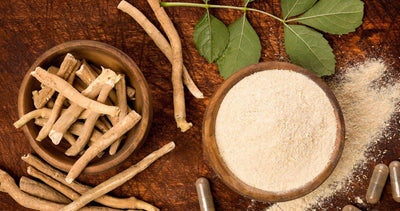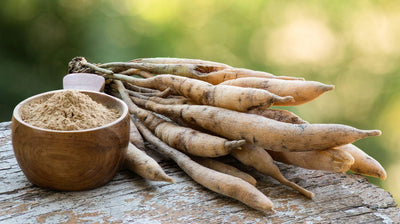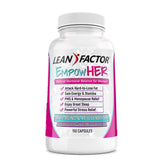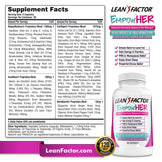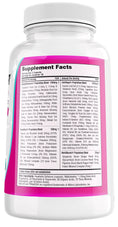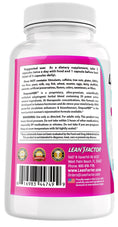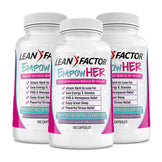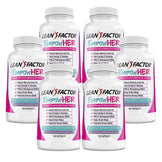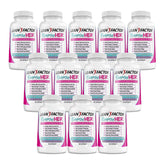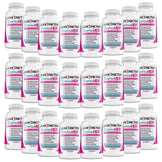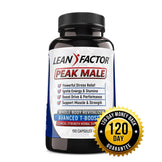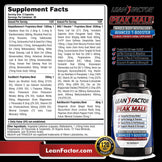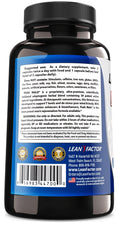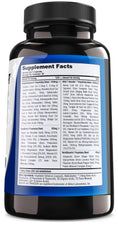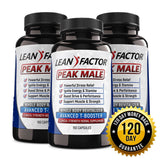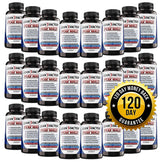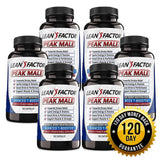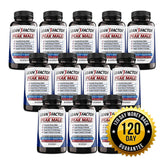Description
Description
Below are the top questions we regularly receive about the topic of extracts.
Q: What are constituents and phytochemicals?
A: Essentially these two terms are describing the same thing. These terms are referring to the natural chemicals found in plants. All plants whether medicinal or not can have hundreds to thousands of these natural chemicals.
Q: How do you define a whole herb?
A: This is a plant in whole or extract form where the parts have not been separated from the whole. This is not a standardized herbal preparation with any promise of specific percentages. Essentially, every batch yields a different end-result based on the quality of the plant you begin with.
Q: What does it mean when an herbal product is standardized?
A: When one purchases a standardized herbal preparation they are essentially getting a guarantee that one or more of the active constituents are in specific amounts based on the research done on that specific herb. The premise behind standardization is that the active constituents are guaranteed in specific amounts. These chemicals are what is supposed to support a specific action or response in the body.
Q: Are there different forms of standardization?
A: Yes, there are two specific preparations that fall into the category standardization.
- First, are the isolated standardization preparations. Standardized isolates are prepared by separating one or two constituents from the herb and concentrating them to specific amounts. Then, it is added back into the whole herb extract.
- The other is a full spectrum standardized preparation. This is a much more balanced version of a standardized extract. This type of extract concentrates all the constituents as a whole, providing a guaranteed specific percentage across the board.
There is no one player considered more important than another in the full spectrum preparation. In my opinion, this should be the gold standard for herbal extracts.
Q: What does the word isolate mean?
A: In reference to both food and herbal medicine, this terms is describing when you separate parts from the whole. A good example would be if you were taking food based, Vitamin C, in supplemental form. That material was extracted from food but is no longer a whole food because only one part is being used as the actual product. Therefore it is considered an isolate.
Q: Why do you suggest only using an isolated standardized herb or formula for 12 weeks?
A: An isolated standardized herb or formula is essentially a natural “drug” because, it is not in it’s natural balance. Therefore, the action it supports, is much stronger and more specific to one system of the body. Over time, the body begins to build a resistance to this type of preparation. It is suggested that you either take a one week break or switch to an herb with similar actions. A good example would be if you had taken the same antibiotic for an extended period of time. Overtime, it would become less effective. Therefore, by switching to a different herb or formula, it will assure you more consistent progress. Note: This is not a perfect rule but a general rule of thumb. If you feel you are still making progress after 12 weeks, simply extend the time frame for another 4-6 weeks. When you begin to see diminishing returns, it is time to change the herb or formula.
Q: Why is balance in an herbal preparation so important?
A: While all organs and systems have specific jobs and functions, they all rely on one another for optimal function. Therefore, much like the healing process of the human body, herbs work more efficiently when you don’t separate the parts from the whole. Nature created that plant to contain those phytochemicals in perfect amounts. All of the phytochemicals in a plant have a purpose (some are used as medicine and others as buffer systems to prevent toxicity) and should be left alone to provide service to the plant and the person using that plant.
A great example is the herb comfrey. This is by far one of the most healing plants knows to man and also one of the most misunderstood.
- Many years ago the FDA banned comfrey for internal use based on a study that was done using an isolated preparation of one specific alkaloid (pyrrolizidine) found in the plant.
- The study showed that when mice were given a high concentration of that specific pyrrolizidine alkaloid that it produced liver cancer.
- Another study was done which helped to clear up confusion that the original study caused. While it is true that when one takes an isolated high concentration of the pyrrolizidine alkaloid, it can in fact, hurt the liver. This second study showed that when someone takes the whole herb the healing properties are much better and it is impossible to build a level of toxicity of any specific alkaloid.
While the FDA agrees with the results of the later study, it hasn't yet removed the ban.
About Michael Stuchiner
 Michael Stuchiner is an experienced Master Herbalist, the Head of Education for Z Natural Foods, a teacher and an accomplished author. With a 16-year specialization in medicinal herbs, Mike also has a vast knowledge in tonic and adaptogenic herbalism. Mike has enjoyed a 25-year career as an elite-level competitive powerlifter where he learned to heal his ‘mind and body’ as an avid user of herbal remedies.
Michael Stuchiner is an experienced Master Herbalist, the Head of Education for Z Natural Foods, a teacher and an accomplished author. With a 16-year specialization in medicinal herbs, Mike also has a vast knowledge in tonic and adaptogenic herbalism. Mike has enjoyed a 25-year career as an elite-level competitive powerlifter where he learned to heal his ‘mind and body’ as an avid user of herbal remedies.
As an “in-the-trenches” herbalist, Mike has done more than 85 speaking engagements, consulted with clients ranging from young to elderly, worked with athletes in virtually all sports and with clients who have “dis-ease” states of a wide variety. Mike also mentors student Master Herbalists and will continue to teach the next generation to grow a deeper wisdom of the human body through appropriate herbal remedies.
For Bulk inquiries and custom formulations click here: https://www.znaturalfoods.com/pages/bulk
